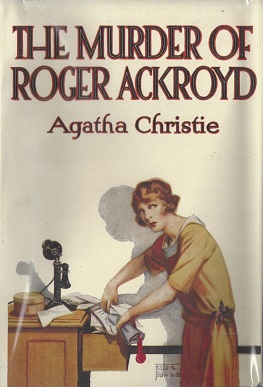
Unreliable narrators occur for many different reasons. There are official classifications for unreliable narrators based on how they are unreliable:
The Picaro exaggerates or boasts to embellish the story. If you're familiar with Moll Flanders, she is a good example of this.
The Madman has a mental affliction of some kind. This category applies to this week's review book, Inside Out, because our first-person narrator has severe schizophrenia. If you're ever read The Cask of Amontillado by Edgar Allan Poe, Montresor is also a Madman-type unreliable narrator.
The Clown is a narrator who doesn't take narration seriously. They toy with the reader, making it difficult or impossible to determine what is meant to be truth and what is a joke or trick.
The Naif is what it sounds like: a naive character. Sometimes they're naive because they're young and/or inexperienced, or sometimes they have cultural differences from what they're witnessing and therefore don't understand it. Two famous examples are Holden Caulfield from J. D. Salinger's The Catcher in the Rye, and Mark Twain's Huckleberry Finn.
The Liar just straight-up lies to the reader, usually to cover up something bad s/he did during or before the story.
There are other types of unreliable narrator, but those are a few of the common ones.
Some famous examples of unreliable narrators include:
"The Merchant's Tale" from Geoffery Chaucer's The Canterbury Tales is slanted because of the narrator's (the merchant's) misogyny, stemming from his unhappy marriage. "The Wife of Bath" from the same book is narrated by a woman who often misquotes things and misremembers details.

Agatha Christie uses unreliable narrators to enhance the mystery in The Murder of Roger Ackroyd (where the narrator makes lies of omission, but never overtly lies) and again in Endless Night.

As with many stories that take place in psych wards, One Flew Over the Cuckoo's Nest by Ken Kesey has an unreliable narrator. In this instance, "Chief" Bromden has schizophrenia, like the kid in Inside Out by Terry Trueman. Girl, Interrupted by Susanna Kaysen is the autobiographical story of Kaysen's stay in a mental hospital; because she was diagnosed with borderline personality disorder, you can argue that she might be an unreliable narrator (in the same way most autobiographers are).
Vladimir Nabokov's Lolita is narrated by Humbert Humbert, who slants the details of the story in an attempt to justify his pedophilia.
Chuck Palahniuk uses an unreliable narrator with disassociative identity disorder to tell the story in Fight Club.
There are many, many more examples of stories with unreliable narrators. Which ones have you read?
No comments:
Post a Comment